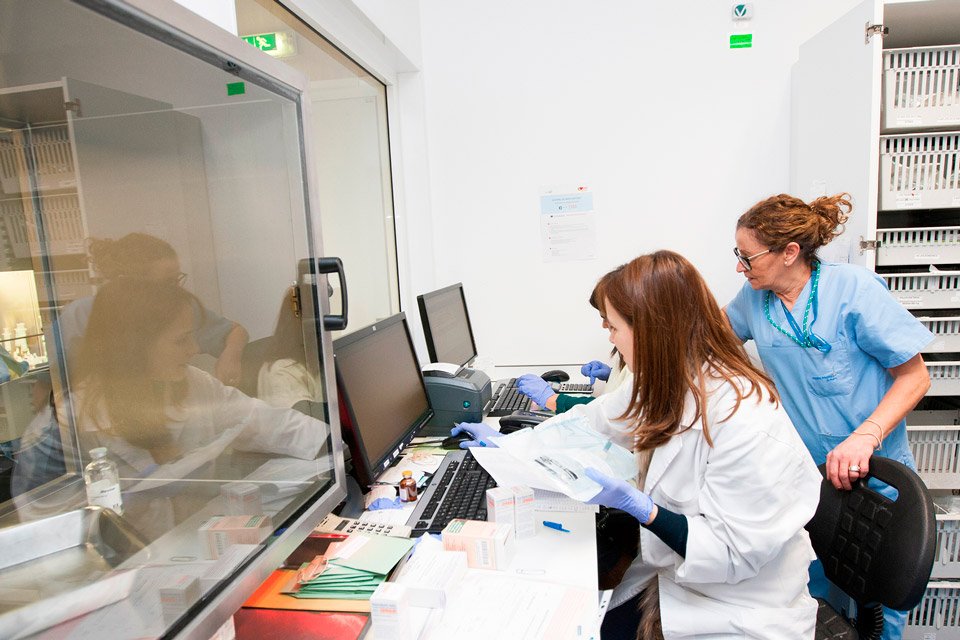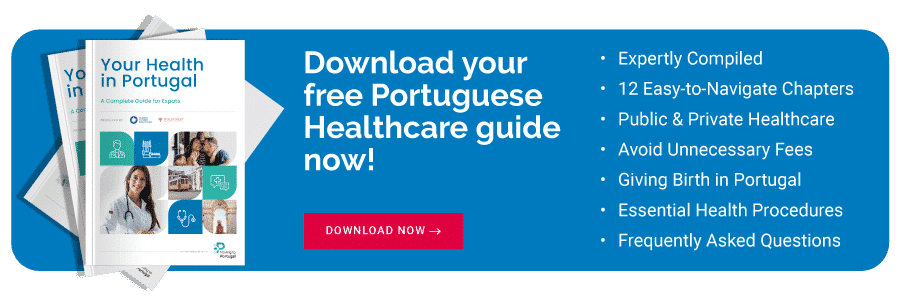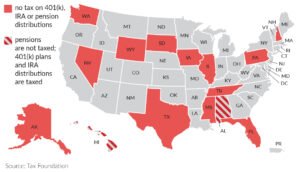Thinking about spending your retirement years in Portugal’s sunny embrace? Understanding how healthcare works there is essential for your peace of mind. This article unravels the ins and outs of the Portuguese healthcare system for retirees, explaining everything from public healthcare benefits and private insurance options to eligibility criteria and how to navigate medical services. With this guide, you’ll feel more empowered to make informed decisions about your health in your golden years in Portugal. Have you ever wondered how healthcare works for retirees in Portugal? If you’re contemplating retirement in this beautiful Mediterranean country, it’s essential to understand how its healthcare system can support your well-being. Portugal is known not just for its picturesque landscapes and vibrant culture, but also for having a reputable healthcare system, which is attracting a growing number of retirees from around the globe.
Check out our recommended retirement gifts!
An Overview of Portugal’s Healthcare System
Portugal’s healthcare system is primarily publicly funded and offers universal coverage, which means healthcare services are available to all residents, including retirees. The system is divided into two main sectors: the public sector, known as the Serviço Nacional de Saúde (SNS), and the private sector.
The Public Sector: Serviço Nacional de Saúde (SNS)
The SNS provides a comprehensive range of services from general practitioner (GP) consultations to specialized treatments and emergency care. Most medical care and hospitalization are free or very low cost. As a retiree, you’ll likely appreciate the extensive network of hospitals, clinics, and emergency services that are part of the SNS.
The Private Sector
While the public healthcare system is robust, some retirees opt for private healthcare services. This sector provides faster access to treatments and a broader choice of healthcare providers. Private healthcare in Portugal is relatively affordable compared to other Western countries, and if you prefer shorter waiting times and more personalized care, this could be a viable option for you.
| Feature | Public Healthcare (SNS) | Private Healthcare |
|---|---|---|
| Cost | Low to Free | Higher but affordable |
| Access | Universal | Less waiting, more choice |
| Speed | Can be slower | Usually faster |
| Quality | High | Very High |
Eligibility and Registration for Healthcare
So, how do you become eligible for healthcare services in Portugal as a retiree? It’s simpler than you might think.
Eligibility for the SNS
To access the SNS, you need to be a legal resident in Portugal. If you’re an EU/EEA or Swiss citizen, you won’t need a visa, but you should obtain a residence certificate from your local town hall. If you’re from a non-EU country, you’ll need to secure a residence permit.
Registration with the National Health Service
Once you’ve got your residency sorted, you’ll need to register with the SNS. Here are the steps, broken down for easier understanding:
- Obtain a Número de Utente: This is your user number for the health system, which can be acquired from your local health center (Centro de Saúde).
- Provide Necessary Documents: Typically, you’ll need your residence certificate, passport, and proof of address.
- Choose a Family Doctor: You’ll be assigned a family doctor who will be your first point of contact for medical issues.

This image is property of www.expat.com.
Check out our recommended retirement gifts!
Supplementary Private Health Insurance
While the SNS is comprehensive, many retirees choose to take out supplementary private health insurance to cover additional services not included in the public sector, such as dental care, alternative therapies, or private hospital fees.
Benefits of Private Health Insurance
Having supplementary private health insurance can give you peace of mind and more options when it comes to healthcare. A good health insurance plan can cover:
- Specialist consultations without long waiting times.
- Faster surgical procedures.
- Access to state-of-the-art medical facilities.
- Additional services like dental care, vision care, and physiotherapy.
Choosing a Private Health Insurance Provider
When selecting a private health insurance provider, consider the following:
- Coverage: Ensure the plan covers all the services you might need.
- Network of Providers: Check if the plan has a good network of hospitals and doctors.
- Cost: Premiums can vary, so find a plan that fits your budget.
- Added Benefits: Look for additional benefits like discounts on medication or wellness programs.
Healthcare Services: What’s Covered?
The healthcare services for retirees in Portugal are extensive, whether you rely solely on the SNS or supplement with private insurance.
Primary and Secondary Care
The SNS provides essential primary care services through family doctors at local health centers, and secondary care is available through hospitals.
Prescription Medication
Medications are subsidized by the SNS, making them quite affordable. The subsidy level depends on the medication category, often ranging from 15% to 100%.
Emergency Services
Emergency care services are available round-the-clock, and as a retiree, you can rest assured that you will receive immediate care in case of urgent health issues.
| Service | Public Healthcare | Private Healthcare |
|---|---|---|
| GP Consultations | Free/Low Cost | Coverage via Insurance |
| Specialist Treatment | Free/Low Cost (with referral) | Coverage via Insurance |
| Prescription Medications | Subsidized | Often Covered |
| Emergency Services | Free | Coverage via Insurance |

This image is property of www.portugalhomes.com.
Dental Care
Dental care is one of the few healthcare services not fully covered by the SNS. While some basic services might be available at public health centers, more complex treatments would require private dental care. Having supplementary private insurance can help cover these costs.
Prescription Costs and Pharmacies
Portuguese pharmacies are modern and well-stocked. Prescriptions are partially subsidized, but the amount you pay out-of-pocket can vary. The pharmacist will advise you on the subsidy level and any co-payment required.
Subsidy Categories for Medications
Medications are classified into different categories, and the subsidy depends on its necessity and usage.
- Category A: Essential medications, e.g., insulin.
- Category B: Useful medications, e.g., antibiotics.
- Category C: Medications for less severe conditions.

This image is property of www.portugalhomes.com.
Long-Term Care and Assisted Living
As a retiree, you may be interested in long-term care or assisted living facilities. Portugal has a variety of options, from in-home care services to specialized facilities.
In-Home Care
In-home care services are widely available and can be tailored to your needs. Services can range from daily housekeeping to full-time medical support.
Assisted Living Facilities
There are numerous assisted living facilities in Portugal that cater specifically to retirees. These facilities offer various levels of care, from independent living with minimal assistance to full nursing care.
Costs of Healthcare in Portugal
One of the most attractive aspects of retiring in Portugal is the relatively low cost of healthcare. However, it’s essential to understand the various fees and expenses that may arise.
Public Healthcare Costs
While most services are free or low-cost within the SNS, some fees might apply, such as:
- GP visits: Small co-payment fee.
- Specialist consultations: Typically need a referral, and co-payment may apply.
- Hospital stays: Generally free, but some administrative fees might apply.
Private Healthcare Costs
Private healthcare in Portugal is more affordable than in many other Western countries, but costs can vary. It’s advisable to get quotes from several providers to find a plan that suits you.
| Type of Service | Public Sector Costs | Private Sector Costs |
|---|---|---|
| GP Visits | Small Co-Payment | Varies |
| Specialist Consultations | Low (with referral) | Higher, varies with insurance |
| Hospital Stays | Generally Free | Depends on insurance |

This image is property of www.globalcitizensolutions.com.
Language Barrier in Healthcare
English is widely spoken in Portugal, especially in healthcare settings. Many doctors and healthcare providers speak English, making it easier for expatriates to communicate effectively.
Tips for Overcoming Language Barriers
- Learn Basic Portuguese Phrases: Even a basic understanding can help in emergency situations.
- Use Translation Apps: Apps like Google Translate can be handy.
- Bring a Friend: If possible, bring someone who speaks Portuguese to help translate.
Healthcare Quality and Accessibility
Portugal boasts high standards of healthcare, with modern facilities and skilled medical professionals. The World Health Organization ranks Portugal’s healthcare system highly for its efficiency and quality.
Accessibility to Healthcare Services
Accessibility is generally excellent, especially in urban areas. Rural areas might have fewer facilities, but emergency services and essential care are still readily available.

This image is property of static.wixstatic.com.
Vaccinations and Preventive Health Services
Vaccinations and preventive health services are easily accessible in Portugal. The SNS provides a range of vaccinations free of charge, especially important for retirees who may have specific health needs.
Common Vaccinations for Retirees
- Influenza
- Pneumonia
- Shingles
- Hepatitis
- Tetanus
Comparisons with Other Countries
When compared to healthcare systems in other countries, Portugal offers a balance of quality and affordability that’s hard to beat. Here’s a quick comparison:
| Country | Healthcare System | Costs | Quality |
|---|---|---|---|
| Portugal | Public & Private | Low to Moderate | High |
| USA | Mainly Private, some Public | High | High |
| UK | Public (NHS) | Low to Moderate | High |
| Spain | Public & Private | Low to Moderate | High |
Additional Resources for Retirees
If you’re planning to retire in Portugal, numerous resources can provide further guidance:
- Expat Community Groups: Join local expat groups for first-hand advice and support.
- Government Websites: Portuguese Ministry of Health websites offer detailed information and updates.
- International Health Organizations: Organizations like WHO provide comprehensive health data and statistics.
Final Thoughts
Retiring in Portugal offers an appealing blend of cultural richness, stunning landscapes, and a healthcare system that ensures you can enjoy your golden years with peace of mind. Whether you rely on the comprehensive public system or opt for the added benefits of private healthcare, Portugal’s healthcare services are designed to cater to your needs efficiently and affordably.
Your journey to a happy, healthy retirement in Portugal is just a step away, and now you’re equipped with the essential knowledge to make informed decisions about your healthcare future in this wonderful country. Enjoy your retirement, you’ve earned it!



